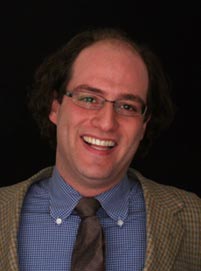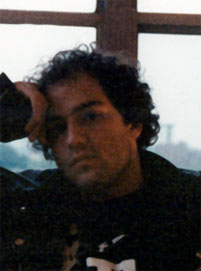Erowid Character Vaults
John H. Halpern
1969 -
Summary
John H. Halpern, M.D. is an Assistant Professor of Psychiatry at McLean Hospital/Harvard Medical School. Halpern's research projects have included evaluating cognitive performance of MDMA users and non-users in the Southwest who have not ingested other illegal drugs, and looking at long-term mental function in regular users of ayahuasca. His study into the effects of an experimental treatment giving MDMA to terminally ill cancer patients was shut down due to enrollment challenges after only two subjects had participated. His interest in the use of ergine, psilocybin, and LSD to potentially help relieve cluster headaches led him to recently create the private pharmaceutical company Entheogen Corp, focused on bringing the non-psychoactive LSD analog 2-bromo-LSD (BOL-148) to market as a treatment for cluster headaches.
Halpern's previous work has included studying the use of peyote by members of the Native American Church, re-examining the use of hallucinogens in the treatment of addiction, working on an amicus brief to the U.S. Supreme Court for the UDV religious-use-of-ayahuasca case that was decided in 2006, and asking the American Academy of Psychiatry and Law to take a stand against capital punishment. He plans to continue researching Native American use of peyote. Halpern maintains research affiliations with McLean Hospital, the National Institute on Drug Abuse, and private foundations.
Controversy: In January 2006, during the LSD Symposium in Basel, Switzerland, Halpern was publically accused by Mark McCloud of cooperating in a DEA investigation related to the "missile silo" LSD case, which resulted in the convictions of William Leonard Pickard and Clyde Apperson. See LSD Case Controversy below.
Halpern's previous work has included studying the use of peyote by members of the Native American Church, re-examining the use of hallucinogens in the treatment of addiction, working on an amicus brief to the U.S. Supreme Court for the UDV religious-use-of-ayahuasca case that was decided in 2006, and asking the American Academy of Psychiatry and Law to take a stand against capital punishment. He plans to continue researching Native American use of peyote. Halpern maintains research affiliations with McLean Hospital, the National Institute on Drug Abuse, and private foundations.
Controversy: In January 2006, during the LSD Symposium in Basel, Switzerland, Halpern was publically accused by Mark McCloud of cooperating in a DEA investigation related to the "missile silo" LSD case, which resulted in the convictions of William Leonard Pickard and Clyde Apperson. See LSD Case Controversy below.
Info & CV
Author of (Articles)
Interviews & Bios
Other Writings
Harvard's Headache Cure: LSD?, DoseNation Comments (Nov 2010)
Reviving Harvard's Psychedelic Legacy (2008)
Amicus Brief to Supreme Court in UDV Ayahuasca Case (2005-2006)
News & Press Releases
LSD Case Controversy #
Links



